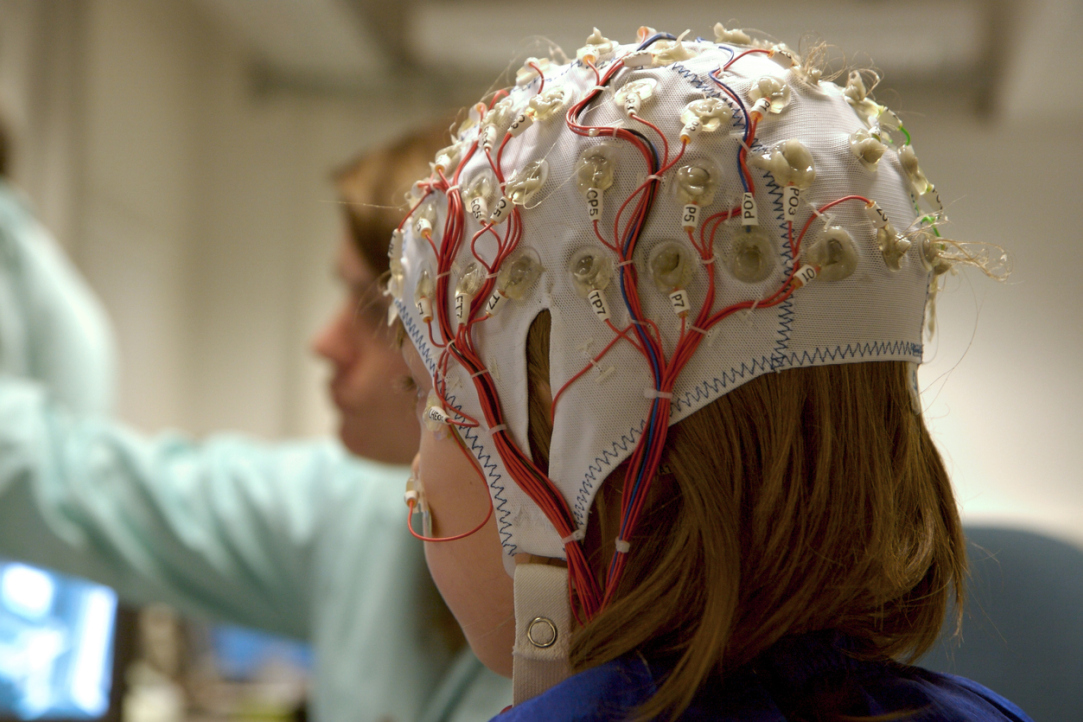
Study Discovers Slower Response to Words Associated with Hand Movement in Children with Upper Limb Arthrogryposis
A team made up of HSE researchers and paediatricians of the Turner Research Institute for Children’s Orthopedics have compared the cognitive functions of children with and without arthrogryposis. The experiment revealed that children with arthrogryposis exhibit a slight delay of a few milliseconds in their brain responses to words associated with hand movements. The researchers suggest that this discovery be taken into consideration when teaching children with motor impairments and developing diagnostic tools. The paper has been published in Clinical Neurophysiology.

Researchers at HSE Mirror Lab Create Robot Gardener
Researchers from HSE University and Tambov State Technical University (TSTU) have developed intelligent robotic systems for the monitoring and quality control of fruits and vegetables. The system allows gardeners to carry out agrotechnical and protective activity, ensuring the highest possible quality of the crop.

Reading Comprehension Not Worsened by Noise, Study Finds
Researchers of the HSE Centre for Language and Brain have investigated the impact of both auditory and visual noise on semantic processing during reading to determine if it results in a more superficial reading style that emphasises the meanings of individual words over connections between them in a sentence. It appears that noise does not affect reading comprehension but can cause a decrease in reading speed when even unintelligible conversations are occurring nearby. However, when exposed to visual noise, individuals tend to read slightly faster, possibly due to the irritating nature of the noise. The study findings have been published in PLOS ONE.

Russian Researchers Discover New Approach to Combatting Osteoarthritis
A team of researchers from HSE University, the Russian Academy of Sciences Zelinsky Institute of Organic Chemistry, and Molecular Technologies, LLC have jointly proposed a new treatment for osteoarthritis. This is currently the first disease-modifying osteoarthritis drug to act simultaneously on bone and cartilage tissue metabolism and on inflammation. The study findings are published in Scientific Reports.

Married Men Less Prone to Workplace Burnout
Greater marital satisfaction lowers the risk of professional burnout, with this correlation being more pronounced among men than women. This is a conclusion made by HSE psychologists after conducting a study on the effect of social interactions on workplace burnout on a sample of 203 employees from several Russian companies. According to the researchers, gaining a better understanding of the specific aspects of burnout experienced by individuals makes it possible to address this syndrome more effectively. The paper has been published in Organizational Psychology.

Russian Scientists Present New Application for Nanophotonic Sensor
A joint research team from HSE, Skoltech, MPGU and MISIS has developed a compact sensor for biochemical analysis, opening up a new frontier in the development of the ‘lab-on-a-chip’. Using bovine serum albumin film as an example, the researchers proved that the chip surface can be adapted for selective analysis of multicomponent solutions. Along with enabling accurate blood tests with only 3 to 5 microliters of blood, the chip will help doctors to detect specific disease markers. The study was published in Analytical Chemistry.

Faculty of Urban and Regional Development Develops a Draft of a New Transport Scheme of Obninsk
On May 3rd, a briefing and presentation session of a project for the development of the city's transport scheme took place in the Obninsk administration. This large-scale project has been implemented by staff from the Institute of Transport Economics and Transport Policy Studies of the HSE Faculty of Urban and Regional Development.

Russian Scientists Discover Method for Enhancing the Capacitance of Supercapacitors
A supercapacitor is a device capable of rapidly storing and releasing a significant amount of energy within a matter of seconds. It consists of metal electrodes immersed in an electrolyte solution. In their model, MIEM HSE scientists substituted the conventional low-molecular-weight electrolyte with a polyelectrolyte, resulting in an unexpected and adverse physical phenomenon: supercapacitors experience a reduction in capacitance when the pore size of the electrode is below 1 nm. By carefully selecting optimal conditions for polyelectrolytes, it becomes possible to develop supercapacitors that are not only more robust but also more efficient in their performance. The study has been published in Physical Review E.

Factors Affecting Alcohol Consumption Are Shaped in Childhood
Economists and sociologists who study alcohol consumption patterns often link them to people's living conditions and human capital such as education, work experience, and knowledge. Researchers of the HSE Laboratory for Labour Market Studies and the HSE Laboratory for Studies in Economic Sociology have found that non-cognitive skills developed in childhood and adolescence can have a major effect on the likelihood of alcohol abuse later in life and can diminish the role of education in this respect. The paper has been published in the Journal of Comparative Economics.

Microgravity Rewires Connectivity in Cosmonauts' Brains
After studying the brain scans of 13 Russian cosmonauts who participated in space missions to the ISS from 2014 to 2020, scientists discovered that prolonged exposure to microgravity had an impact on the connectivity of the brain structures responsible for adapting to unfamiliar conditions. The study revealed that these connections may not always return to their original state after the flight. The paper has been published in Communications Biology.

